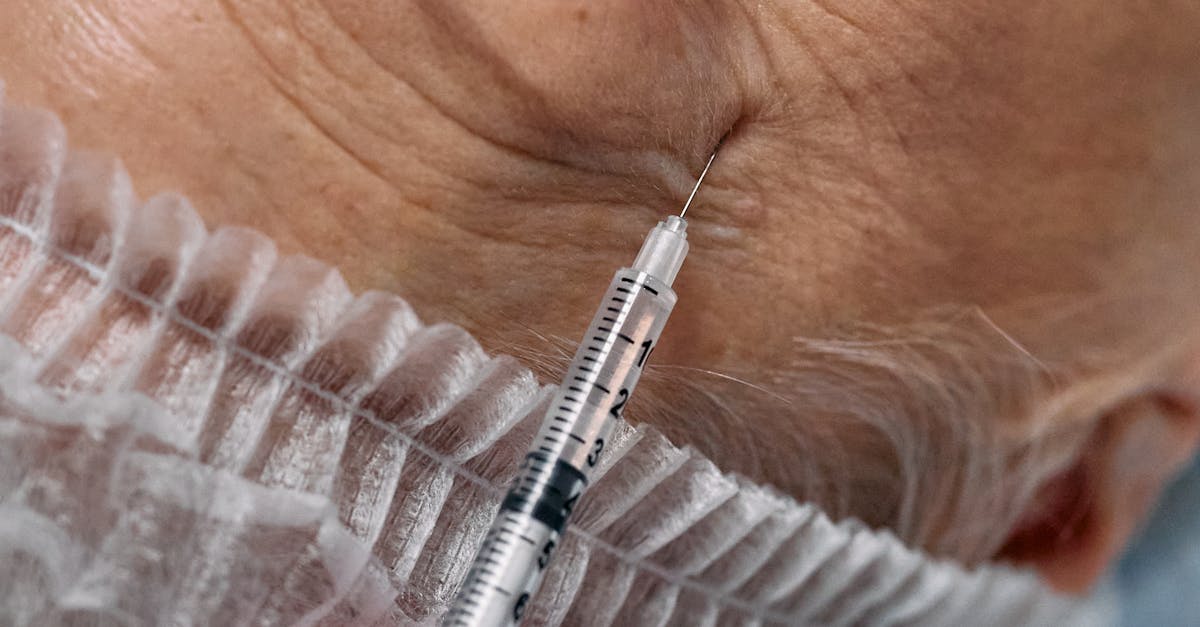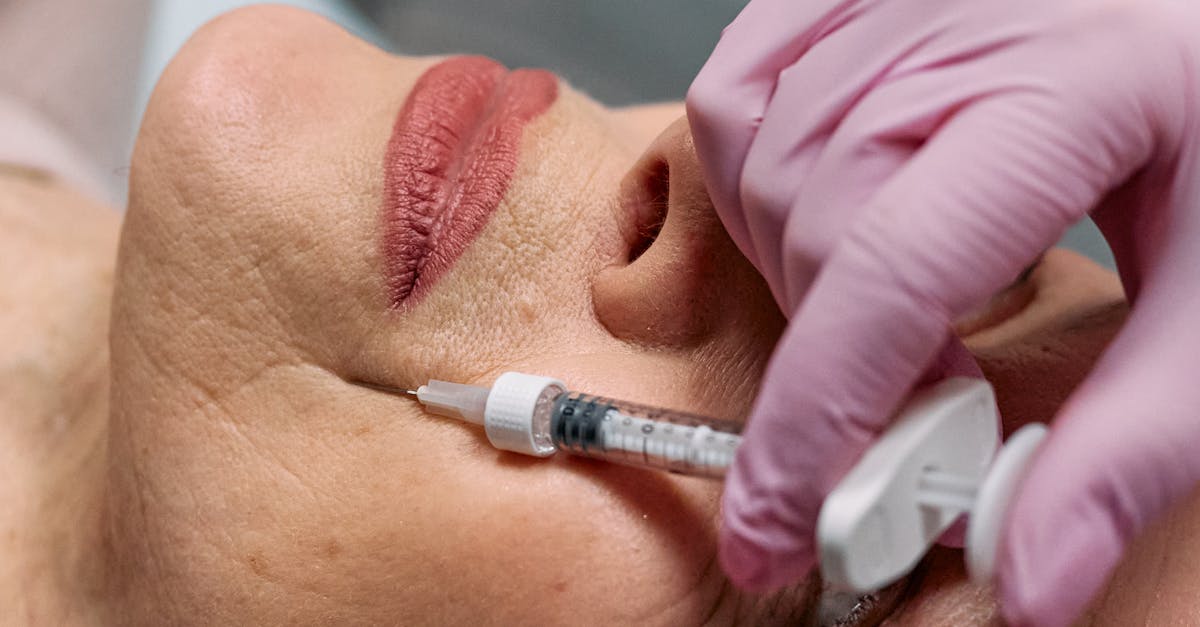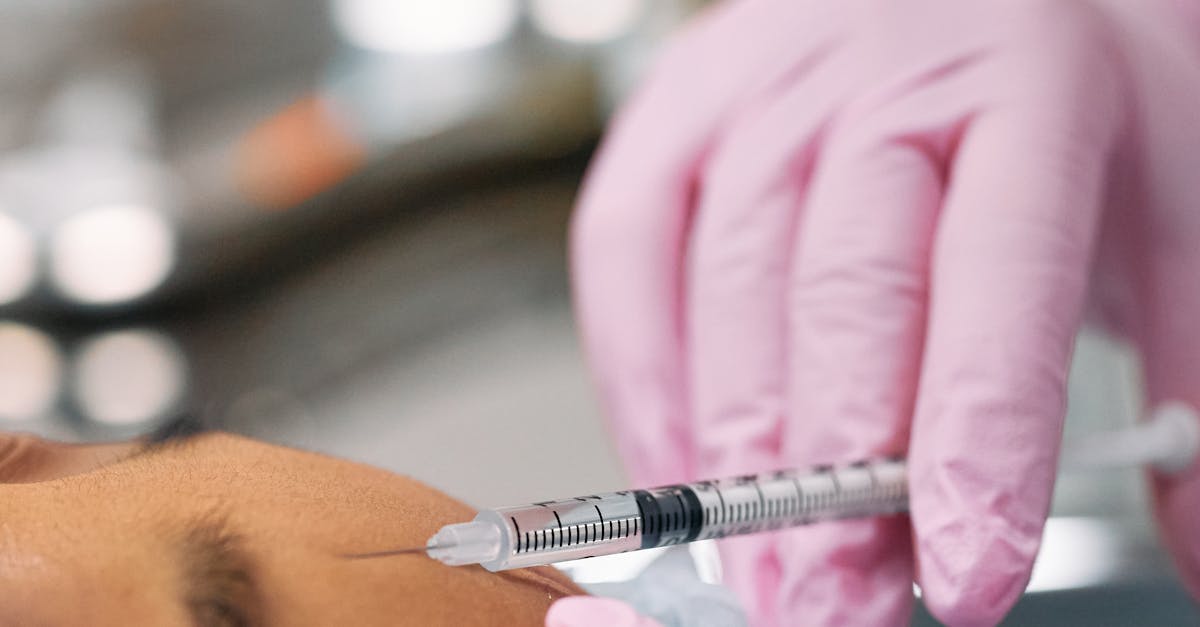
Table Of Contents
Role of injection technique in the longevity of Botox effects
The role of injection technique plays a crucial part in determining how long the effects of Botox Injections last. A skilled and experienced professional administering the injections can significantly impact the longevity of the results. The precision with which the injections are placed can influence how effectively the Botox works and how long it stays effective in the targeted areas of treatment.
Certain lifestyle habits can also affect the duration of Botox results. For instance, smoking has been shown to potentially diminish the efficacy of Botox Injections, leading to results that may not last as long as expected. Therefore, when considering the longevity of Botox effects, it's essential to take into account not only the injection technique but also lifestyle factors that could impact the overall outcome.
Precision and skill of the administering professional
The precision and skill of the administering professional play a crucial role in determining the longevity of Botox Injections. A highly trained and experienced professional who is well-versed in the intricacies of facial anatomy and injection techniques can significantly impact the effectiveness of the treatment. Their expertise allows for more accurate placement of the injections, ensuring that the Botox reaches the targeted muscles for optimal results. Professionals who are proficient in administering Botox Injections can help maximize the longevity of the treatment by delivering precise doses in the appropriate muscle groups, ultimately enhancing the overall effectiveness and duration of the results.
On the contrary, inexperience or lack of training in administering Botox Injections can lead to suboptimal outcomes and shorter durations of efficacy. A lack of precision in injection placement or improper dosage can result in uneven effects or reduced longevity of the treatment. It is essential for individuals seeking Botox Injections to choose a qualified and skilled professional to ensure that the treatment is administered properly and effectively. By selecting a knowledgeable practitioner who possesses the necessary expertise, patients can enhance the longevity of their Botox results and achieve the desired aesthetic improvements.
Lifestyle habits that can affect the duration of Botox results
Lifestyle habits play a significant role in determining the longevity of Botox injections. For instance, smoking has been found to have a negative impact on the efficacy of Botox treatments. Studies have shown that smokers may experience a quicker breakdown of the Botox solution, resulting in shorter-lasting results compared to non-smokers. Therefore, individuals who smoke may need more frequent Botox treatments to maintain their desired results.
In addition to smoking, other lifestyle factors such as sun exposure, alcohol consumption, and stress levels can also influence the duration of Botox results. Excessive sun exposure can accelerate the breakdown of Botox in the skin, leading to faster fading of the injections' effects. Similarly, high levels of stress or alcohol consumption can contribute to muscle tension, which may cause Botox to wear off more quickly in certain individuals. It is important for individuals receiving Botox injections to be mindful of these lifestyle habits in order to optimize the longevity of their results.
Smoking and its impact on Botox efficacy
Smoking has been identified as a significant factor that can impact the efficacy of Botox Injections. Research suggests that individuals who smoke may experience a faster breakdown of Botox compared to non-smokers. This could lead to shorter-lasting results and necessitate more frequent injections to maintain the desired effects. The chemicals present in cigarettes are believed to interfere with the neuromuscular blockade induced by Botox, thereby reducing its duration of action.
Moreover, smoking is known to accelerate the aging process and contribute to the formation of wrinkles and fine lines. These effects can counteract the benefits of Botox Injections, as the continuous muscle contractions from smoking-related facial movements can work against the muscle relaxation achieved by the injections. Therefore, individuals who smoke may need to be mindful of this additional factor when considering the longevity of their Botox results.
Variability in Botox persistence among different treatment areas
Botox injections are commonly used to reduce the appearance of wrinkles and fine lines by temporarily paralyzing the muscles responsible for causing these skin imperfections. The longevity of Botox's effects can vary depending on the treatment area. Areas with stronger muscles, such as the forehead or crow's feet, may require more frequent touch-ups compared to areas with weaker muscles, like the chin or neck. The difference in muscle strength and movement among various facial regions contributes to the variability in how long Botox results last.
Moreover, individual characteristics of each treatment area also play a role in determining the persistence of Botox effects. Areas that are more frequently exposed to sunlight or are subject to repetitive motions, like smiling or frowning, may experience faster breakdown of the neurotoxin. Understanding the unique characteristics of each treatment area can help both patients and medical professionals manage expectations regarding the duration of effectiveness of Botox injections.
Different response times in facial muscles
Facial muscles can exhibit varying response times to Botox Injections, contributing to differences in how long the effects last. This discrepancy in response rates is attributed to the specific muscle group targeted and its unique characteristics. Some muscles may temporarily resist the effects of Botox Injections, necessitating additional sessions or higher dosages to achieve the desired outcome. On the other hand, certain facial muscles may respond rapidly to the treatment, resulting in quicker visible improvements that can also endure for an extended period.
Understanding the diverse response times of facial muscles to Botox Injections is crucial for both patients and healthcare providers. It allows for more tailored treatment plans that align with individual muscle behaviors, optimizing the longevity and effectiveness of the procedure. By recognizing these variations and customizing injection techniques accordingly, practitioners can enhance patient satisfaction and deliver consistent results across different facial regions.
FAQS
How long do Botox injections typically last?
The effects of Botox injections usually last for 3 to 4 months, but this can vary depending on individual factors.
Can the injection technique impact how long Botox lasts?
Yes, the precision and technique used by the administering professional can influence the longevity of Botox effects.
What lifestyle habits can affect the duration of Botox results?
Smoking is known to have a negative impact on the efficacy of Botox injections, potentially reducing their duration.
Is there variability in how long Botox lasts in different treatment areas?
Yes, the persistence of Botox effects can vary among different treatment areas on the face.
Do facial muscles respond differently to Botox, affecting how long it lasts?
Yes, different facial muscles have varying response times to Botox, which can impact the duration of its effects.


